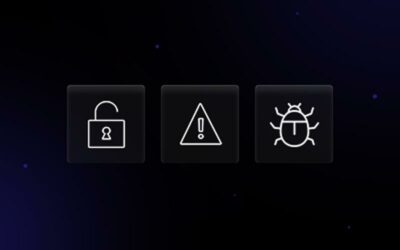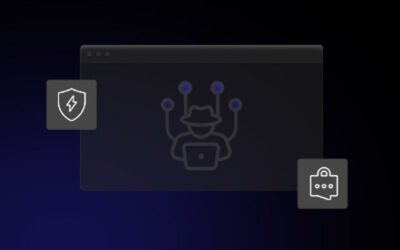Whether it’s losing personal data because of a stupid mistake or a company-wide breach, getting hacked is never fun.
In fact, it’s incredibly distressing and potentially life-changing.
But what the worst that can really happen if you do get hacked? Has this tech-centered world cushioned the blow or increased the damage someone rifling through your digital details can do?
In this article, we’ll try and answer that question for both individuals and business owners to not just offer you a broader idea of the dangers of getting hacked, but how you might go about avoiding it.
WHEN YOUR PERSONAL MACHINE/ACCOUNTS GET HACKED
It might not always be immediately obvious you’ve been a victim of hacking.
If you’re one of many victims of a multi-company breach all the major news outlets will go wild, as they did with the Equifax hacking of 2017. However, if it’s a more targeted attack you may not realize you’re a victim until you spot an unexpected bill in your account or a card payment gets rejected. This can be distressing and raise questions about how long you’ve been vulnerable.
Fortunately, compromises to your credit or debit card are some of the easiest to manage. Often, individuals will not be responsible for fraudulent charges, and the bank issuing you a new card can solve much of the problem around future attacks.
Fighting back control of an account can be a slightly tougher ask. Contacting the email provider is one option, although these larger companies can be difficult to get a personalized answer from. If the hacker has changed your password, this only complicates the situation, especially if you haven’t set an alternative contact address. With access to your email account, hackers can begin to send password resets to themselves and seriously compromise your digital footprint.
Check all accounts where you’ve used the same email address and password. Hackers know this is common practice and will attempt to log in to accounts on popular sites such as Facebook and gaming platforms to access more private information. Create a checklist of all the sites and services you use to check whether they have also been compromised.
If you’ve been a serious victim of identity theft and are helplessly watching thousands drain from your account, this Which.com guide features a comprehensive look at the recourses available, including how UK-based readers can get in touch with Action Fraud.
WHEN YOUR BUSINESS GETS HACKED
Your business being hacked is a slightly different story, as you don’t just need to be concerned about your personal information, but the information of others.
First, consider how your company was storing private information and how you’ve been hacked. Customer data will often be stored primarily through your website host, but client and private company information may be saved as documents and images on your machine. If your business has been compromised to a more significant degree and you are being locked out of your computers, it further complicates the situation.
Much like when your private details and accounts are hacked (see above) you should take the time to go through all associated accounts and ensure the hackers haven’t spread across your private network using your login details. This information can be used to cripple your business step by step.
Your store or platform provider will have unique cybersecurity systems and protocols that should be able to assist you in password and data recovery.
A hacking situation can have a significant impact not just on a business’ ability to trade, but their reputation. This will limit the number of new customers willing to take a chance on you and create a distance between you and existing, previously very loyal, consumers.
The sensitivity of this information — not just for financial gain but brand reputation — is why many hackers will hold them ransom, demanding a fee be paid before they allow access to accounts and machines again. Ransomware is a growing concern for many online businesses and you should be across it, whether you’re selling online or working with private clients.
HOW TO AVOID GETTING HACKED
If you’re concerned you may be vulnerable to hacking, here are a few ways you can create a more secure and up-to-date perimeter around your private information or business.
First, all devices should be fitted with anti-virus software. It’s easy to gloss over mobile devices, but whether you’re accessing mobile banking or checking company emails from these devices it’s important to have some security measures in place. This Tom’s Guide article has a list of some of the best protective apps on offer.
Switching to a multi-factor authentication system can have a significant impact on a hacker’s ability to access your accounts. Two-factor authentication is the most common example of these, often sending a code to the user’s mobile device that needs to be used to log into an account. This prevents anyone who only has access to your email account from doing serious harm and notifies you of potential issues.
A final potential way of stopping hackers is to switch to using VPNs. These protective systems (even free VPNs) protect your privacy from internet service providers or anyone who may be secretly watching you. This is particularly effective should you need to access private information while on public WiFi (which we would usually advise against). WhatIsMyIPAddress.com has a list of free VPNs for you to trial on your devices to help you get more familiar with the benefits of VPNs.
WHAT TO DO IF YOU DO GET HACKED
If it’s unfortunately too late and you have been hacked, here are some tips for dealing with it.
Reset all passwords
Starting with your email account and working through your financial, social media, and other critical accounts that might house private and sensitive information (including card details) you should look to reset your password to something completely different and new across the board. This will stop people who already have access to your account to do further damage.
If you’ve been locked out of any of your accounts, many mainstream services will have backup protocols to help you get back into your account, such as an alternative email or giving a trusted friend access. Check with these individual services for more information.
Alert the site
Altering the site you were hacked on is an important step in the post-hacking process, not just to protect your own details and improve your chances of recovering private info and funds, but to protect others from the same fate.
Although some will be unable to help you recover access to an account, they can lock it to avoid any further damage being done.
Scan your devices
A hugely important part of the process is checking your devices for potentially hazardous malware that may be hacking into your details.
Run a scan on your computer and mobile devices using an up-to-date and trusted antivirus software program. This will target potential issues and offer peace of mind.
You should be regularly scanning your devices anyway, and consider updating or changing your antivirus software if it was broken through before.
There are few things more distressing than having your personal details hacked. It can affect anyone, even the most tech-savvy individuals with multiple passwords and two-step authentication across all their accounts if they’re careless enough.
But remain calm. While it can feel like someone has been combing through all your private information, there are easy solutions and the common nature of hacking crimes means there are more solutions than ever before.




